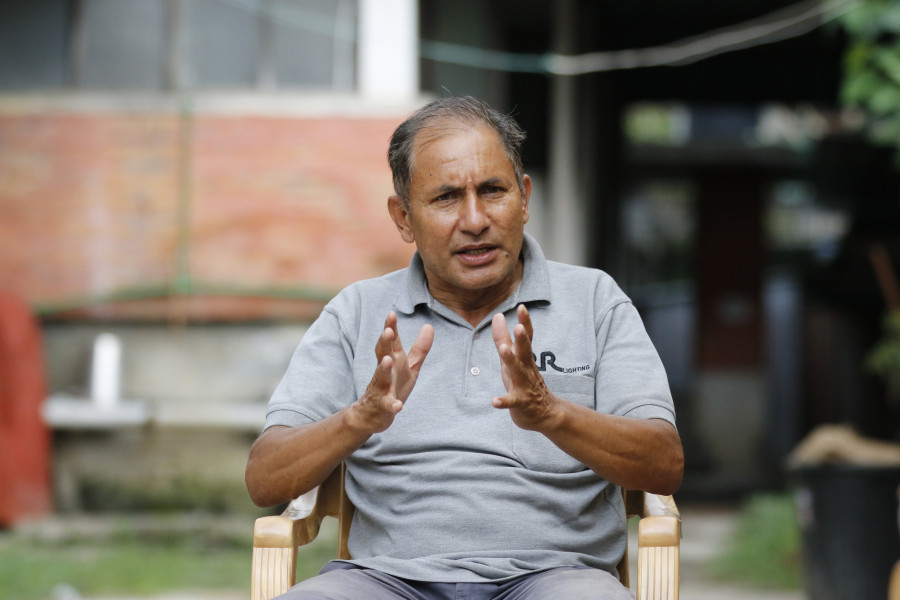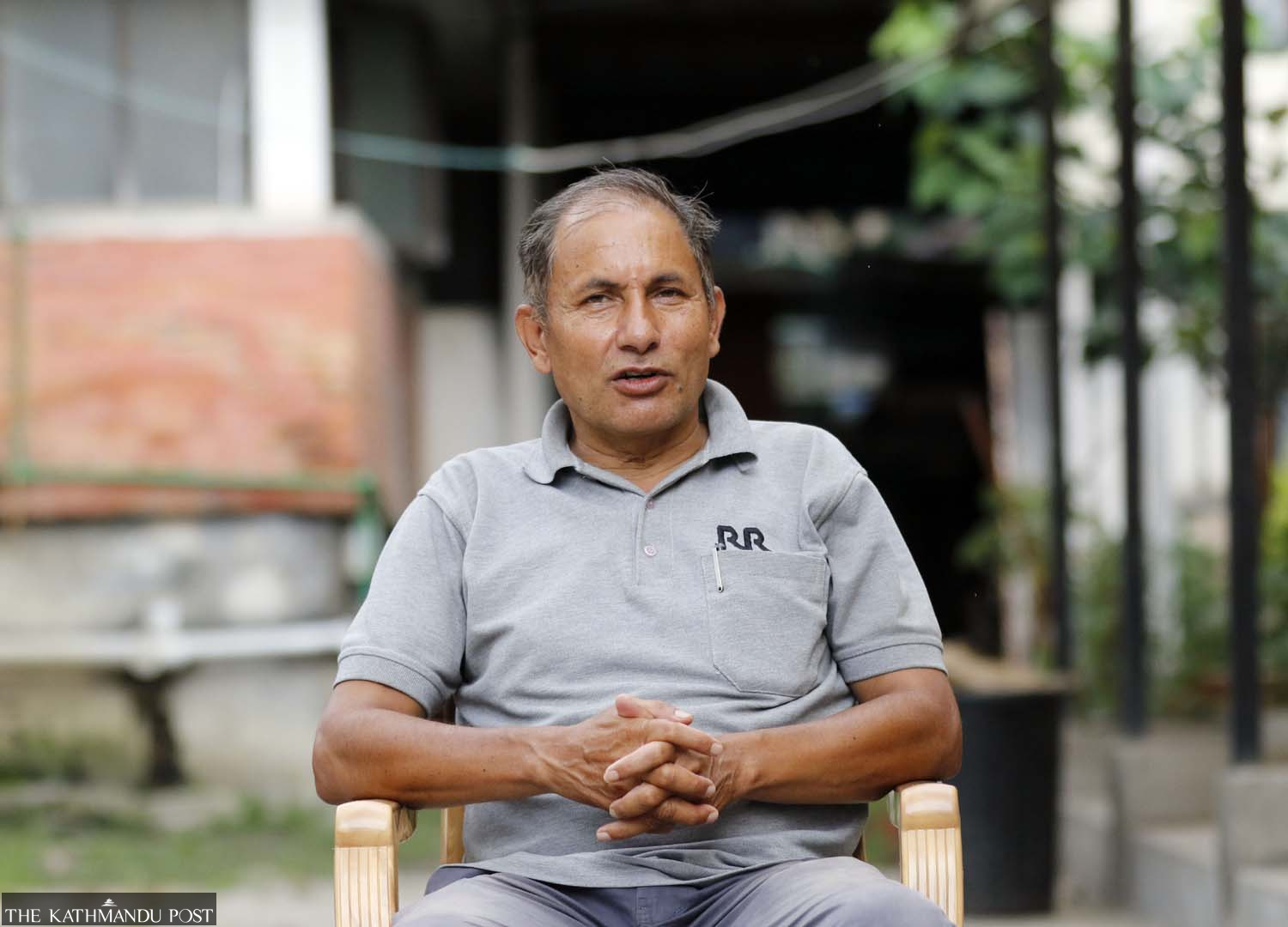Interviews
‘Maoist party will amend statute to pick top leaders through elections’
Lekhnath Neupane, a CPN (Maoist Centre) central committee member, on a legion of issues related to both the party and the government raised during the central committee meeting.
Tika R Pradhan
On Sunday, the ruling CPN (Maoist Centre) concluded its central committee meeting—which was organised after 14 months even though party statute requires it to be held at least twice a year. At the meeting, a legion of issues related to both the party and the government were raised and the party leadership came under heavy criticism. Among those critics was Lekhnath Neupane, a Maoist Centre central committee member. Post’s Tika R Pradhan caught up with him. Experts:
Can you please tell us a little about what transpired at the meeting?
We were holding the central committee meeting after 14 months. But it was more like an extended gathering of the party, with provincial office bearers, members of various commissions of the party as well as added members of the central committee in attendance. But the party recognises only 149 central members, which means the party has been openly flouting its statute.
Attendees complained that they didn’t get a political document this time. Has that practice been discontinued?
Those following the parliamentary system generally use very few documents. Maybe we are going the same route.
Does that mean the Maoist Centre now functions completely in line with the parliamentary system?
Our eighth general convention embraced the path of a peaceful parliamentary system. But discussions are still on. The Maoist movement in Nepal started in order to expose the duplicity of the parties, especially the CPN-UML, who were following parliamentary democracy. So if we too start completely following their line, we will lose all our political space.
After the annulment of the Nepal Communist Party (NCP), what is the political line of the Maoist Centre?
We abandoned Maoism while forming the NCP but we again adopted it after the court dissolved the NCP. Why should we follow the court’s order and return to Maoism? But we don’t want to discuss such a serious ideological issue. This lack of discussion is weakening the Maoist party.
Is the party prepared to abandon the Maoist tag?
Ours is the only party still sticking to the Maoist tag. Again, in practice, we have already abandoned Maoism. It’s only in our banners. I don’t think there will be any objection from within to jettison the tag. On the other hand, the parliamentary system and Maoism are exact opposites. This ideological paradox is the irony in our party’s life. Such contradictions—adopting a system which the party fought to end—have not only affected the party but also the country.
What sort of political line should the party adopt?
Political parties work to transform society. Among them, communist parties focus more on class issues. So first, we need to study the status of classes in Nepal. This will clear our relationships with different classes—with whom do we need friendly relations, and against whom we should fight. This will clear the line of our party. Things have drastically changed in our society. Migration has affected production which determines relations among the classes. People now have no identity due to migration, which is a serious problem. No political party has studied this changing trend. We have to develop political lines and programmes based on the study of these emerging trends. Can we ignore the parliamentary system and elections? That is not possible, at least not now. But we are currently focussed only on elections, parliament and government as if they are everything. The Maoist identity has been lost after we stopped talking about the liberation of masses.
Was the criticism of Maoist leadership more strident this time compared to in previous meetings?
Since the Balaju extended meeting of August 2007, the trend of giving positive criticism started in the party. That gradually increased–more at Kharipati, and then at Palungtar. So, it’s true that criticism has increased compared to the past. Within the party, you increasingly hear criticism of nepotism of leadership. The criticism was sharp.
What other issues were raised in the meeting?
Even in such a big mass, leaders could freely express their views, which was positive. But the level of discussions was pretty low. For instance, some were expressing anger at their inability to meet top leaders. Such questions divert attention away from major issues. Another issue is that we commit to transform but soon forget about it. It’s been six years since the party chair promised to leave his Khumaltar-based rented house, but he does not do so. We don’t do what we say. Questions were raised: Why are top leaders appointing family members as their personal assistants? If we continue with this trend, we won’t be able to bring socialism to the country in another 5,000 years.
I tried to raise ideological issues–there is no instance of communist movements rising up after they start on their downward journey. In this way, not only us, the UML also will reach the bottom.

How do you see the Maoist Centre faring in the next electoral cycle?
We have not dared fight elections alone lately. We don’t know with whom we will forge an electoral alliance. We have not discussed the naturalness of our relations with the parties representing different classes. Nepal’s left movement is in crisis. In my personal view, we should end the cooperation with Congress and work to unite all leftist forces. I see the possibility of left unity—if we can deal with the battle of egos among top leaders.
Many speakers in the meeting praised the government’s activities. Was the praise justified?
Some leaders praised the government. In my view the starting is good. The question is: On what basis is the government taking action? This is important. While opening the files of corruption cases, if we don’t seek the reasons behind the abrupt increase in prices of vegetables and grains, people won’t get relief. The issue of market monitoring is crucial. The government’s work will only be praised if the farmers are adequately paid, the role of middlemen is minimised and people get to buy things at reasonable prices.
Who do you think is responsible for the declining image of the Maoist party?
The party has no ideological and theoretical clarity. If we improve our behavioural aspects, that can help move the party ahead but it will only be a temporary measure. Curiously, in our party, I see that second-generation leaders are worse than top leaders, and the third generation is the worst. They only wait for opportunities, and another section is competing to become personal assistants. This shows that our journey is not in the right direction.
What are some of the concrete outcomes of the meeting?
First, we have decided to convene a statute convention and limit the number of members of individual committees to 99. Second, we have decided to organise a special convention to discuss our lapses on ideological issues and our mistakes. Third, there is a proposal for a three-month campaign to return to the people. If we actually go to the grassroots, that will certainly benefit the party. Fourth, in this large gathering, people were allowed to speak up their minds, which in itself is an achievement.
Many also raised questions about leadership change. Is that possible?
Our chairman has been publicly attacked, saying he has been in leadership since 1990. The UML has been making it a big issue at times. This is an issue of discussion. But this should not be about one person but about developing a culture. This question will be resolved by making a system of selecting leaders through elections. We are preparing to go that way by amending our statute.
Maoist leaders have also faced allegations of gold smuggling. Why is the party mum about it?
Leader Barshaman Pun, who has been implicated by some in the recent gold smuggling case, has defended himself in the meeting and vowed to support the investigation. There should be no bias in investigation. But why are questions being raised against our leaders? The crux is: Their personal properties have increased exponentially. The state, party, society and everyone should question the source of their property.




 14.12°C Kathmandu
14.12°C Kathmandu




.jpg&w=200&height=120)







